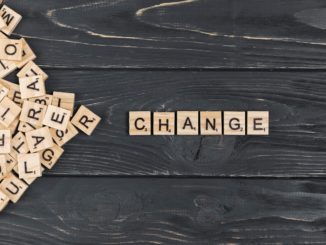The speed at which anyone talks has a big impact on the way an audience sees that person and the speech that they are giving. For this reason, it is clear why it is necessary to understand the rate at which you speak and how to adjust this depending on the kind of speech you are giving.

We will take a look at how you can calculate your speaking rate and how you compare it to the average so that you can understand how words minutely differentiate. We will also provide you with some exercises, so you can develop a speaking rate that adapts to the situation you are in. And, remember that if you have no idea how to write a good speech, you can always turn to a professional speech writer for help and get your speeches written from scratch.
The Importance Of Speaking Rate
Your speaking rate is important as it impacts how your audience perceives the message you are delivering. Usually, a slower speaking rate is easier for an audience to understand. By including pauses in your speech you allow your audience the chance to absorb what you are saying. That said, the clarity of your speech is as important as the pace.
Calculating Your Speaking Rate
A speaking rate is often expressed in words per minute, otherwise known as wpm. In order to work out your words per minute, it is necessary to record yourself speaking for a few minutes and then total up the number of words in your speech. You will then need to divide this number of words by the number of minutes it took to complete the speech. The formula looks like this:
Speaking rate (wpm) = total words / number of minutes
Use a video camera or smartphone to record yourself. Once you have done this there are two ways that you can work out the number of words in your speech. You can upload your speech to a speech-to-text platform. Some of these are free to use. Once you have converted your speech to text format you will need to copy this text into a package such as Google Docs and use the word count feature. Alternatively, you can just count the words manually as you listen back to your speech. Once you have managed to work out the number of words you will need to convert the time into minutes. For instance, if your speech was 3 minutes and 30 seconds long, you will need to divide the number of words by 3.5.
The Average Speaking Rate
The purpose of a speech can change the average speaking rate. For English speakers in the US, it is believed that the average speaking rate is 150 wpm. For example for podcasters, professional speech writers,and radio presenters, the wpm can be higher than this. Below is a list of the average speech rate for various activities:
- Conversational: between 120 – 150 wpm
- Radio hosts and podcasters: between 150 – 160 wpm
- Audiobooks: between 150 – 160 wpm, which is the upper range that people comfortably hear and vocalize words
- Presentations: between 100 – 150 wpm for a comfortable pace
- Commentators: between 250- 400 wpm
- Auctioneers: can speak at about 250 wpm
To help you put this in content, 130 words per minute is the equivalent of reading an A4 page in around 5 minutes.
Are you stuck trying to perfect that essay or research paper? Let a professional help! Essay Editing Services can provide the proofreading and editing you need to guarantee your document is error-free. Whether it’s for college, university, or business applications, these experts offer an unbiased view and will make sure your story comes across in the best way possible. They specialize in proofreading to tighten your writing and make sure it’s free of grammatical errors, typos, misspellings and more.
Factors That Influence Overall Speaking Rate
Many factors that affect the rate at which we speak can be controlled by ourselves:
- Verbal pauses – pauses are a good way to emphasize what you are saying as well as break up your speech. Obviously, pauses will slow down a speaking rate.
- Nervousness – When we are nervous we speak quicker than normal as we take smaller shallow breaths to rush through what we are saying.
- The complexity of content – if you are talking about something complex you will need to speak slower than normal so that your audience can take on board what you are saying.
- Mental fatigue – when we are tired our thought processes are affected and this can make it difficult for us to articulate ourselves, and it causes us to speak more slowly.
- The complexity of the words – words that are complex will take more time to say and can affect the pace of your speech if you are counting words per minute.
- Regular speaking rate – this depends on your environment including your parent’s culture and your friends.
- Event-driven pauses – these are the kinds of pauses that are event-driven i.e. checking your notes or waiting for a slide to change during a presentation etc.
- Audience-driven pauses – your audience causes these pauses, for instance, if they ask a question.
- Saying something urgent – We will speak quicker if something is urgent, for example, calling for an ambulance.
Developing An Adaptive Speaking Rate
Below we will provide you with some exercises to help you to develop an adaptive speaking rate:
● Listen to good speakers. Listen to somebody that you admire whether it is a commentator or a radio presenter, it can be anybody who speaks in public. Carefully note how their speech rate differs during this time and how effective this is an experiment and adopt the methods they use to help themselves.
● Use familiar material. Recite or read some content that you are familiar with, quickly and slowly. It is best to record yourself and then play it back to yourself. Consider where you think your speed was effective. Think about elements of your speed that need to improve. Make a note of what you need to change and incorporate these changes into your speech and record yourself once more.
● Read children’s stories. In silence, read a children’s story to yourself so that you become familiar with the flow. Take another look at the story and think about which parts are better to read quickly and which are better to read slowly. Once you have done this, read the story out aloud and this time listen to how your speed can affect how the story is interpreted. If possible, record yourself doing this and save each version that you do. This way you have something to refer back to. By recording yourself you don’t have to guess how you read it as you are able to hear exactly as you read it.
Experiment with a speech
Deliver a speech that you have created and record it. Deliver the speech at your normal speaking rate. Make a note of the time it took you to complete. Go through your speech again and mark down the parts that need to be faster or slower. Record yourself once again and check the new time and anything that you have learned after doing this
Read factual reports
Choose a magazine or newspaper that is loaded with information. First, read it in your head so that you become familiar with the flow of the material. Next, read it out aloud and once again make notes of the parts which need to be read slower or faster. Keep rereading the information until you feel you have a good mix of speeds.



Be the first to comment